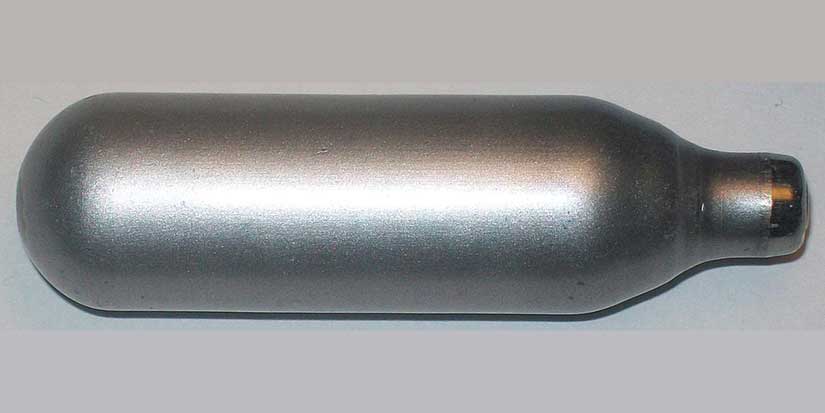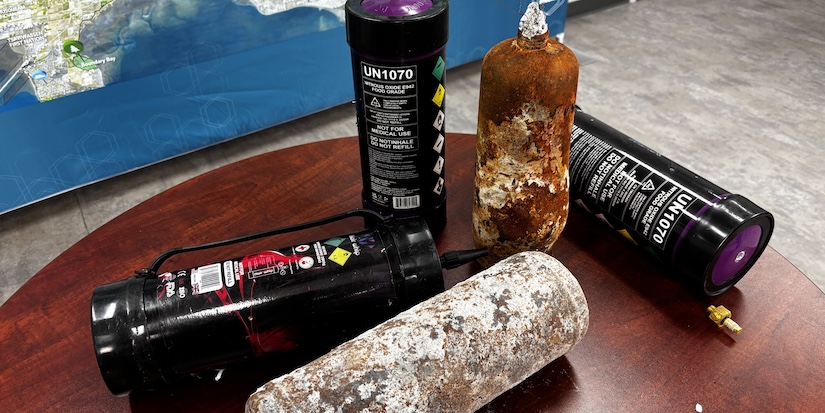Latest News
Nitrous oxide: No laughing matter
—
A Richmond emergency ward doctor is warning of the dangers from breathing in nitrous oxide for fun.
He knows what he’s talking about. Dr. Matthew Kwok has seen the damage first hand.
“We’re seeing patients in the emergency department with drug-induced psychosis and neurological effects who’ve inhaled nitrous oxide,” Kwok says.
The gas, commonly called laughing gas, belongs in whipped cream or in an operating theatre but not inside your lungs for fun. And nitrous oxide, when combined with oxygen and administered in a carefully controlled dose by an anesthetist who has over a decade of medical training, can be a safe way to reduce the pain of medical procedures.
When used in a specialized pressurized container for whipped cream, nitrous oxide is safe. The lack of oxygen prevents the milk from souring while whipping up the cream. And the lack of oxygen is good for preserving freshness, but not good for living things.
Vancouver Coastal Health warns that when inhaled recreationally, nitrous oxide can cause problems that range from minor and short term to permanent brain damage to even death. Part of the high can be from depriving the brain of oxygen.
“People become addicted to this drug. Its non-medical use can be extremely dangerous.” Kwok says.
Any time someone takes in deep breaths that do not include oxygen, they deprive their body of this life-giving gas. Nitrogen, helium and other gases do not feed our vital organs the oxygen they need to survive. The heart and brain are often the first ones affected by lack of oxygen. The effect can be temporary, permanent, cumulative or even deadly. High doses of nitrous oxide can cause life-threatening consequences, including seizure, coma and sudden sniffing death syndrome. The latter condition occurs when the heart stops beating during inhalant abuse.
Because no one tracks how many patients come in with problems caused by recreational nitrous oxide inhalation, there is no way of knowing how big the problem is, if there are geographic areas where it’s more of an issue or even which age group is most at risk.
In the December 2019 issue of the BC Medical Journal, Kwok outlines the case of a 20-year old woman with no history of psychiatric or medical illness before experiencing visual and auditory hallucinations. She admitted using nitrous oxide daily. She had recently increased her dosage. When Kwok and his team attempted to report the case, they found that, unlike opioid overdoses or food poisoning, there is no agency keeping track of nitrous oxide overdoses in Canada. So no one knows to look for this problem.
So far, the government only keeps track of defective whipping cream chargers. These mini-canisters of nitrous oxide, or chargers, are often called by one company’s brand name, Whippit.
“Our research shows very few reported cases, in part because the nitrous oxide comes from a product marketed for whipping cream and an adverse report would only be accepted if the canister itself was faulty,” Kwok says. “This is a commercially available product that can cause serious adverse health effects, yet there isn’t a proper reporting mechanism that adequately reflects (its) magnitude.”
He suggests access to the product should be restricted and safeguards added to minimize harm.
If you are cleaning up after a gathering, empty balloons and balloons smelling of strange chemicals could be signs of inhalant abuse.
Metal cylinders, colloquially called crackers, are used to hold nitrous oxide cartridges so they can be punctured for use. These can be purchased legally for whipping cream, but could also be a sign of nitrous oxide abuse.
Kwok also says medical staff and the public need to be more aware that nitrous oxide may be the cause when they see someone in medical distress.
“When people present at the emergency department with unexplained neurological symptoms, it’s important for clinicians to consider nitrous oxide as a possible cause,” he says. “It’s also important for users to know that using this product outside a supervised medical setting can cause serious health effects.”
Richmond residents can now call a single number, 604-204-1111, to get information and to connect with all mental health services in the city.































